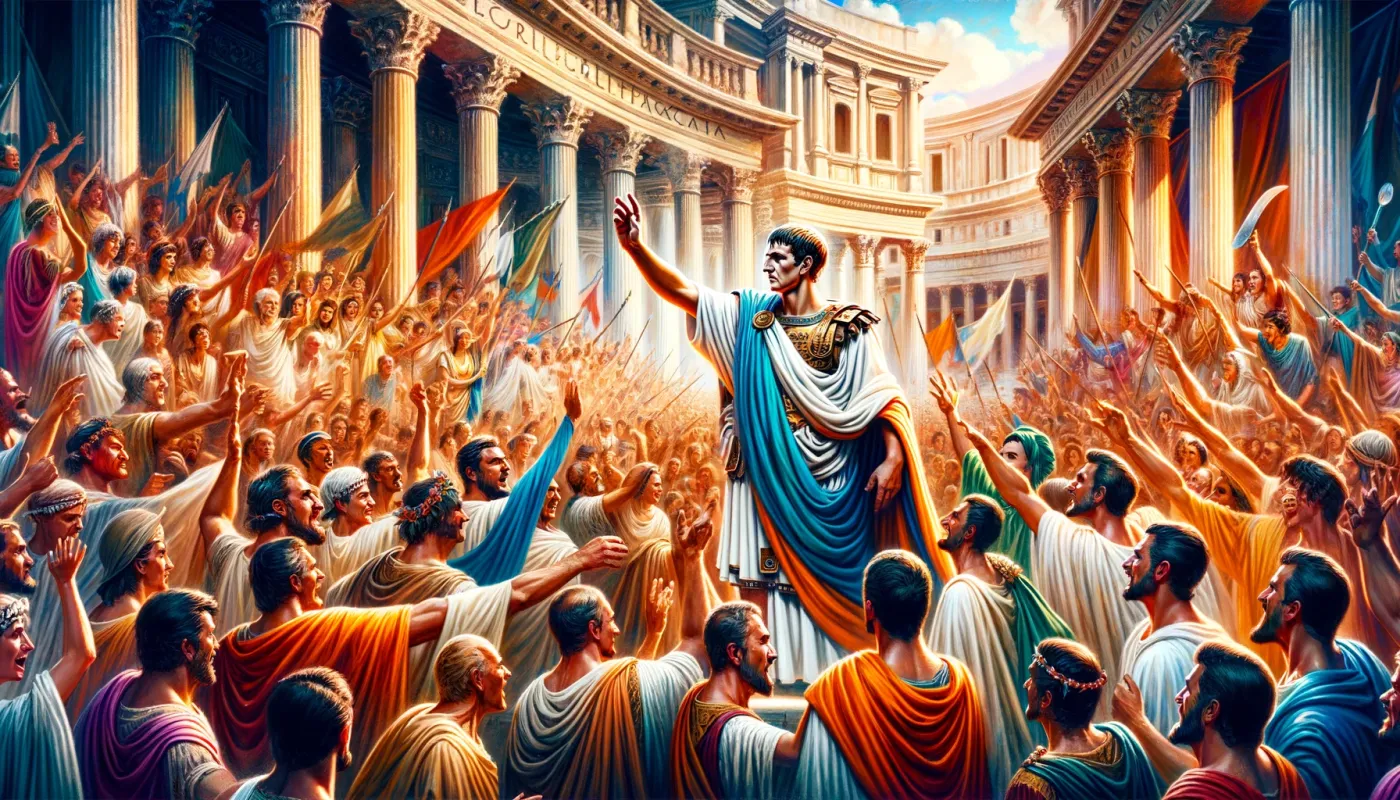7 Lies About Julius Caesar's Legacy That Change Everything

Though Julius Caesar is one of the most famous figures from antiquity, much of what we think we know about him is riddled with myths and misconceptions.
From his role in the fall of the Roman Republic to his famous last words, separating fact from fiction will change the way we see him forever.
7. Caesar was Emperor of Rome
Myth: Julius Caesar was the first Emperor of Rome.
Reality: Though he wielded unparalleled power, Caesar never took the title of emperor. Instead, he was declared 'dictator perpetuo', dictator in perpetuity, which was a temporary Roman appointment made permanent in his case. This title was far from the hereditary rule established by his successor, Augustus, who formally became the first emperor, initiating the Roman Empire and a new era in Roman governance.
6. "Et tu, Brute?" were Caesar's last words
Myth: Julius Caesar's last words were the dramatic "Et tu, Brute?" as he was assassinated.
Reality: These immortal words are a creation of William Shakespeare, who dramatized the assassination in his play "Julius Caesar". Ancient chroniclers like Suetonius noted that Caesar died without speaking, although he mentions the possibility of the Greek phrase "Kai su, teknon?" implying a personal betrayal by Brutus, who was close to Caesar and possibly his illegitimate son.
5. Caesar was killed in the Senate
Myth: Julius Caesar was assassinated while seated in the Senate chamber.
Reality: Contrary to popular belief, Caesar was killed in the Curia of Pompey, a structure that served as a temporary Senate meeting place. This area was part of Pompey's vast complex, which included a theater and was chosen as the Senate's meeting spot during renovations to the traditional Curia. This setting underscores the deep political rivalries of the time, as Pompey was one of Caesar’s greatest rivals before his eventual defeat.
4. Caesar was a tyrant hated by all
Myth: Julius Caesar was universally hated for his tyranny, leading to his assassination.
Reality: Although his centralization of power certainly irked the senatorial elite, Caesar was beloved by many for his populist reforms. He enacted laws to redistribute public lands to the poor, restructured debts, and reformed the calendar, which endeared him to the public and the military. His assassination was more about the fears of the elite than a universal disdain.
3. The Roman Republic was thriving before Caesar
Myth: The Roman Republic was a well-functioning state before Caesar's rise to power.
Reality: In truth, the Republic was beset with internal strife, corruption, and inefficiency. Caesar’s rise was largely due to the Senate's inability to address these pressing issues and the resultant public outcry for strong leadership. His crossing of the Rubicon was a response to a state in crisis, not the cause of the crisis itself.
2. Caesar's assassination restored the Republic
Myth: The assassination of Julius Caesar led to the restoration of the Roman Republic.
Reality: Far from restoring the Republic, Caesar's death led to further instability and civil wars. These conflicts were exploited by his adopted heir, Octavian (later Augustus), who maneuvered his way into power, defeating Mark Antony and Cleopatra, and finally consolidating power into what would become the Roman Empire, effectively ending the Republic.
1. Julius Caesar was purely Roman in his outlook
Myth: Caesar exclusively promoted Roman culture and traditions during his rule.
Reality: Caesar was a cosmopolitan leader who embraced a variety of cultural influences, particularly Greek. His plans for Rome included not just extensive building projects but also cultural enterprises like the proposed library, which was intended to bring Hellenistic knowledge to the heart of Rome, reflecting his broader vision for a culturally rich and diverse empire.
